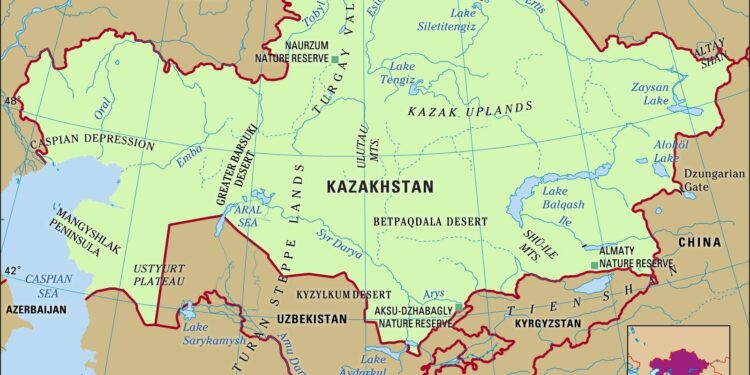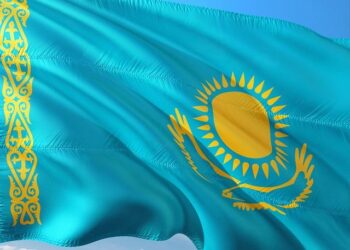Kazakhstan’s evolving ties with the Middle East are reshaping regional dynamics and unlocking new economic and strategic opportunities for both sides. As Central Asia’s largest economy seeks to diversify its partnerships beyond traditional allies, its engagement with Middle Eastern nations is gaining unprecedented momentum. This article explores why Kazakhstan’s relations with the Middle East matter today – highlighting the geopolitical, energy, and trade dimensions that underpin this growing alliance and what it means for regional stability and global markets.
Kazakh-Middle Eastern Ties Drive Strategic Economic and Energy Cooperation
The evolving partnership between Kazakhstan and key Middle Eastern nations reflects a deepening commitment to strategic economic collaboration, particularly in the energy sector. Kazakhstan’s vast hydrocarbon reserves complement the Middle East’s robust investment capabilities, creating a dynamic platform for joint ventures and technological exchange. This synergy not only enhances energy security across both regions but also propels large-scale infrastructure projects, including pipelines and renewable energy initiatives, aimed at diversifying supply chains and boosting regional connectivity.
Key areas of cooperation include:
- Oil and gas exploration and production technologies
- Renewable energy development and investment
- Trade facilitation and logistics networks
- Financial partnerships and sovereign wealth fund collaborations
| Year | Joint Energy Projects | Trade Volume (USD Billion) |
|---|---|---|
| 2021 | Pipeline Expansion | 3.4 |
| 2022 | Solar Energy Launch | 4.1 |
| 2023 | Gas Storage Facilities | 4.8 |
Cultural and Diplomatic Bridges Strengthen Regional Stability and Influence
Kazakhstan has increasingly positioned itself as a central figure connecting Central Asia with the Middle East, leveraging cultural diplomacy to deepen mutual understanding and trust. Through initiatives like cultural festivals, academic exchanges, and collaborative art exhibitions, the country fosters people-to-people ties that transcend traditional political boundaries. These efforts are more than symbolic; they help build a foundation of cooperation that enhances regional resilience against geopolitical tensions. Shared historical narratives and religious traditions play a pivotal role in this dynamic, opening avenues for dialogue and partnership among diverse communities across the Gulf and Central Asia.
On the diplomatic front, Kazakhstan’s balanced foreign policy and active participation in regional organizations serve as a stabilizing factor, bridging divergent interests and facilitating multilateral engagements. The government’s commitment to peace-building and economic collaboration is reflected in key agreements and joint initiatives in trade, energy, and infrastructure development. Below is a snapshot of Kazakhstan’s recent cultural and diplomatic milestones that highlight this bridging role:
| Year | Initiative | Impact |
|---|---|---|
| 2021 | Middle East Central Asian Cultural Forum | Enhanced intercultural dialogue and academic partnerships |
| 2022 | Kazakhstan-Gulf Economic Partnership Agreement | Boosted bilateral trade and investment flows |
| 2023 | Joint Peacekeeping Training Exercises | Improved regional security collaboration |
- Cultural exchanges increase mutual respect and reduce misconceptions.
- Diplomatic cooperation secures long-term stability in volatile regional contexts.
- Strategic partnerships foster sustainable economic growth benefiting both sides.
Unlocking Potential Through Enhanced Trade Partnerships and Policy Alignment
The strengthening of trade partnerships between Kazakhstan and Middle Eastern countries is rapidly transforming the economic landscape of both regions. With Kazakhstan’s strategic location bridging Central Asia and Europe, combined with the Middle East’s vast investment potential and energy resources, collaborative ventures are unlocking new avenues for growth. These partnerships are bolstered by targeted policy alignments that streamline customs regulations, reduce trade barriers, and foster a climate of mutual trust. As a result, sectors such as energy, agriculture, and logistics are emerging as key beneficiaries, paving the way for diversified commerce and sustainable development.
Key benefits of this evolving cooperation include:
- Increased bilateral trade volume: Enhanced frameworks have accelerated the exchange of goods and services, stimulating economic activity on both ends.
- Technology transfer and innovation: Partnerships facilitate knowledge-sharing, especially in renewable energy and infrastructure projects.
- Improved regulatory coordination: Harmonized policies reduce bureaucratic delays, benefiting exporters and investors alike.
| Sector | Kazakhstan’s Strength | Middle East’s Contribution |
|---|---|---|
| Energy | Abundant natural resources | Investment capital & technology |
| Agriculture | Vast arable land | Market access & logistics |
| Logistics | Strategic transit routes | Port infrastructure & financing |
Closing Remarks
As Kazakhstan continues to navigate its strategic position between East and West, its growing ties with the Middle East signal a shift in regional dynamics that could reshape economic and political alliances. Understanding the importance of these relationships offers key insights into Kazakhstan’s ambitions on the global stage and the broader implications for Eurasian geopolitics. As both regions seek new partnerships amid a changing world order, the evolution of Kazakhstan-Middle East relations will remain a critical story to watch.
















